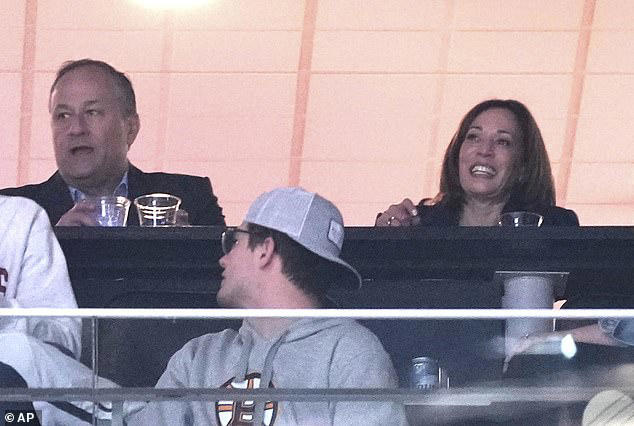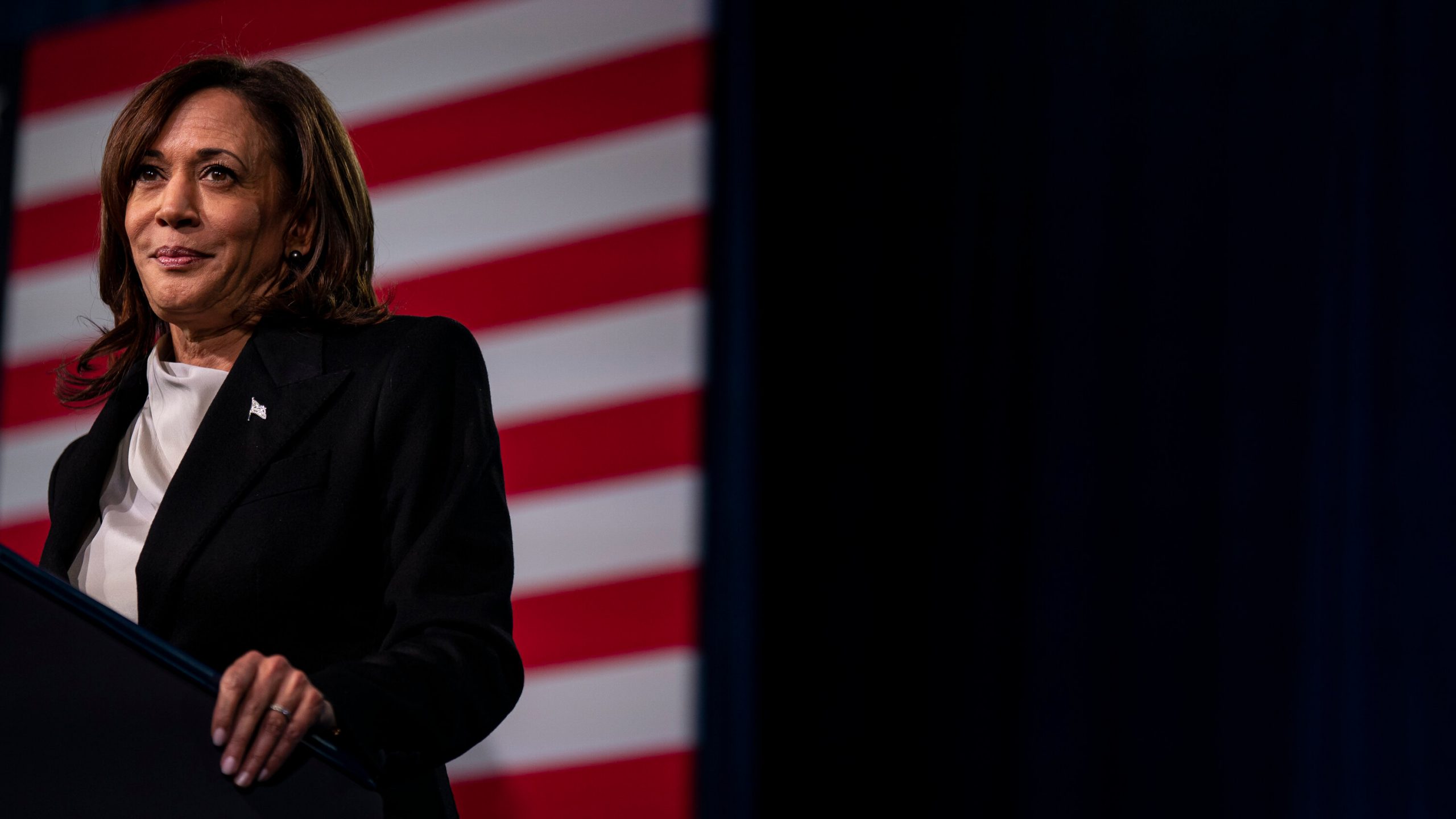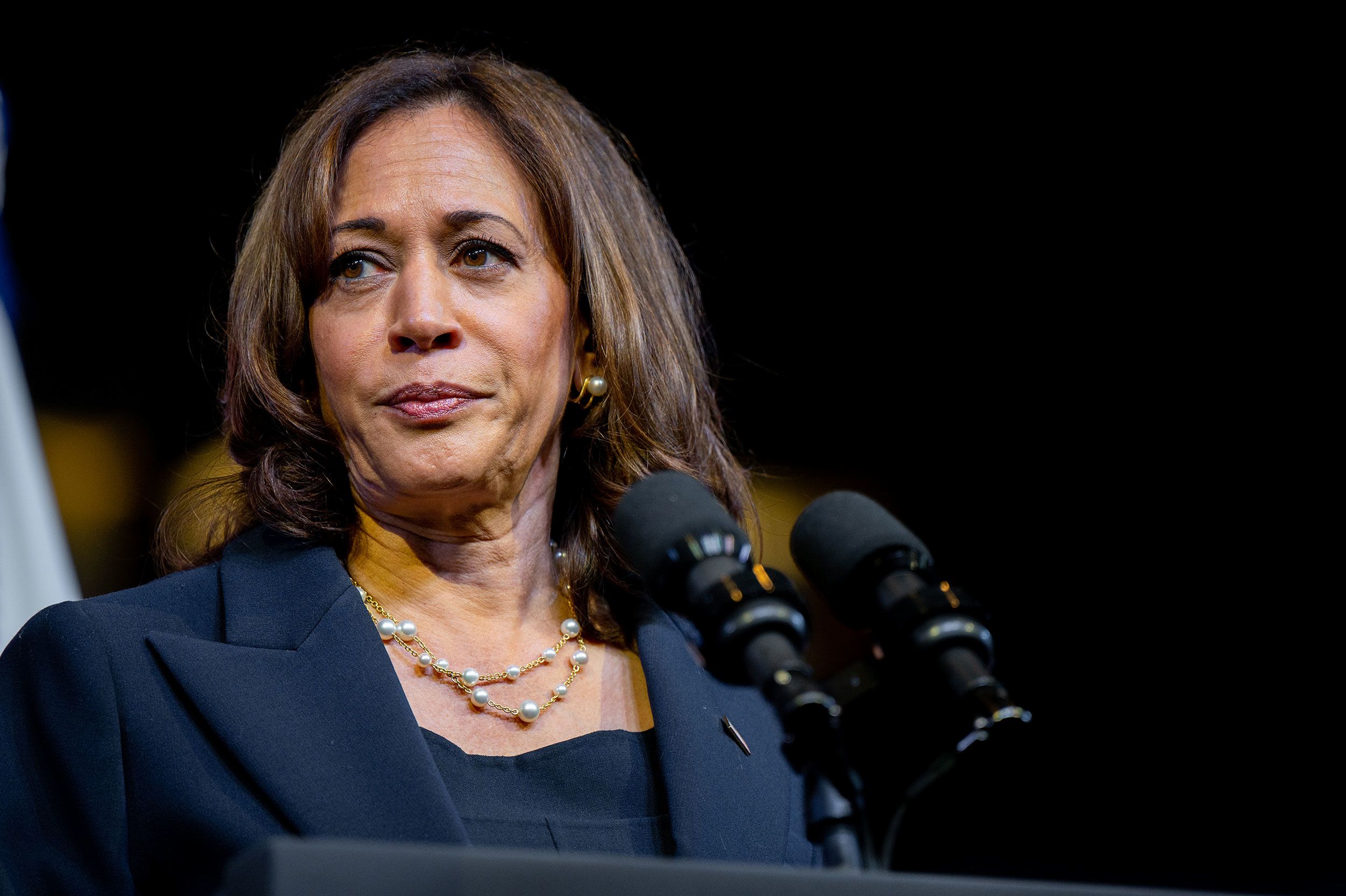Vice President Kamala Harris recently attended a March Madness game between Howard University and Kansas at the Wells Fargo Arena in Des Moines, Iowa. Her presence at the game, as a graduate of Howard University, was seen as a show of support for her alma mater’s basketball team.
However, the warm welcome she expected quickly turned into a cold and hostile reception from the crowd. This article will examine why Vice President Harris was booed during her appearance at the game.
Together with her husband, Doug Emhoff, Harris attended the game in a suite at Wells Fargo Arena. Harris graduated from Howard, a Historically Black University (HBCU), in 1986, earning a bachelor’s degree in political science and economics.
During the game, she expressed her admiration for Howard’s men’s basketball team, despite their loss. As a freshman, Harris ran for her first position as a class representative at Howard and has since been an active member of the university’s community. But when shown on the arena’s jumbotron, the crowd started booing her.
Kamala Harris was booed by the crowd at a surprise March Madness appearance in Iowa as she watched her alma mater Howard University fall to Kansas, according to the AP. 😂 pic.twitter.com/gnZakJOhXa
— Julia 🇺🇸 (@Jules31415) March 17, 2023
What was the reason behind the crowd’s boos in March madness?

The crowd’s reaction to Harris was polarized, with the boos drowning out the applause she received when shown on the arena’s jumbotron.
The likely audience demographic, mostly from the red states of Kansas and Iowa, could explain the reaction. Most Iowans voted for Donald Trump in the 2020 presidential election, while Kansas had a high percentage of Trump supporters.
Harris’s appearance at the arena may have triggered an emotional response from the crowd.
Kamala Harris Advocates for Increased Support of Sports Programs at HBCUs to Foster Future Leaders

Despite the chilly reception she received from the Iowa crowd at the March Madness game, Vice President Kamala Harris remained committed to her advocacy for HBCUs and their sports programs.
During the game, Harris emphasized the importance of supporting sports programs at HBCUs to shape future leaders. She stressed that coaches invested in their students on and off-the-field performances and emphasized HBCUs need sufficient resources to support their programs.
On the previous day, the commissioners of four major HBCU conferences, the CIAA, MEAC, SWAC, and SIAC, agreed to collaborate with professional sports leagues like the NBA and NFL. It was a step to increase the value of HBCUs and support more athletes in pursuing professional careers.
Her attendance at the game and her public statements about the importance of supporting these programs demonstrate her dedication to promoting opportunities for underrepresented groups in higher education and sports.
As the first woman and person of color to hold the office of Vice President, Harris’s unwavering commitment to equity and inclusion serves as a beacon of hope for all those fighting for a fairer and more just society.








